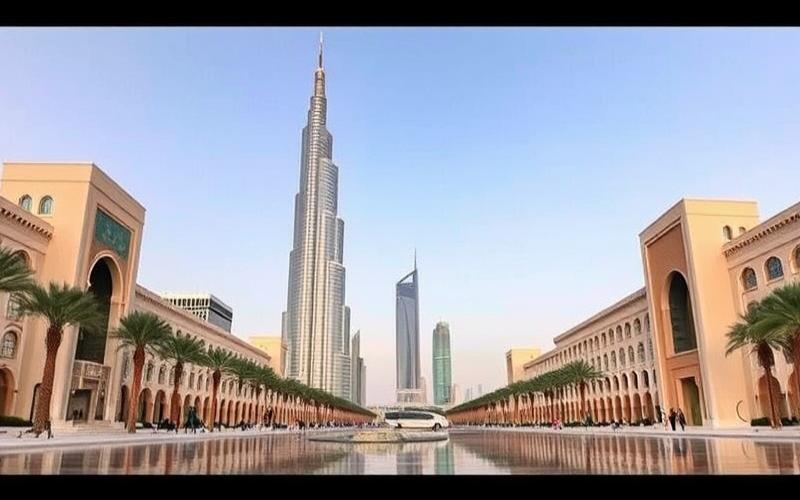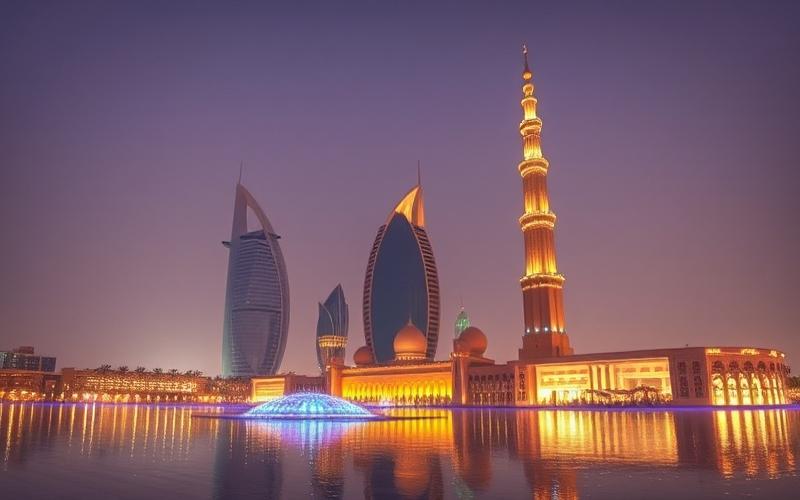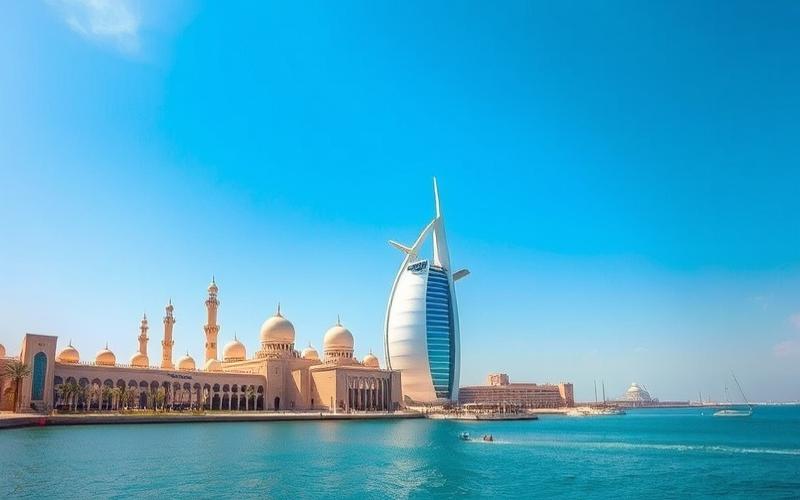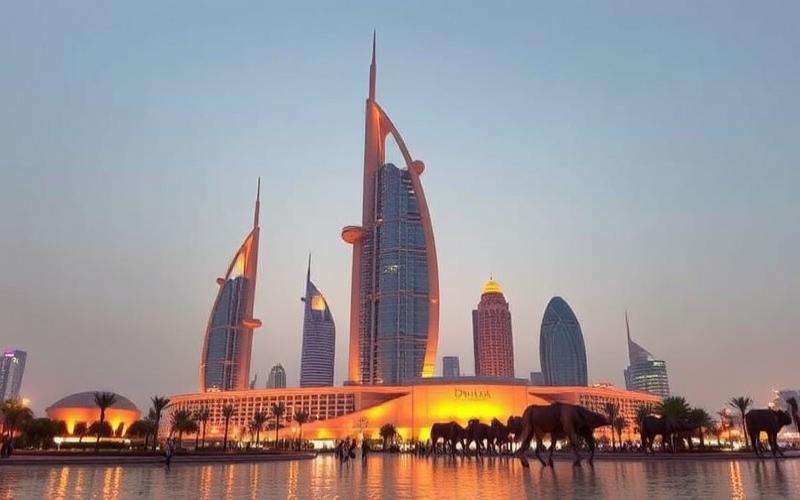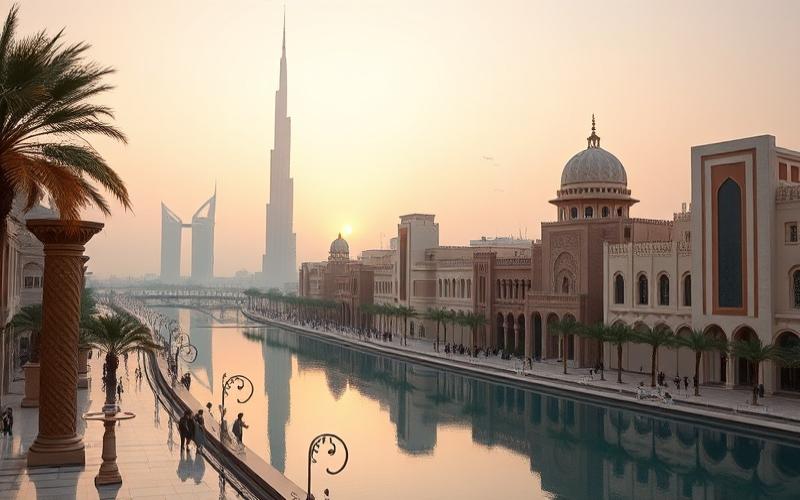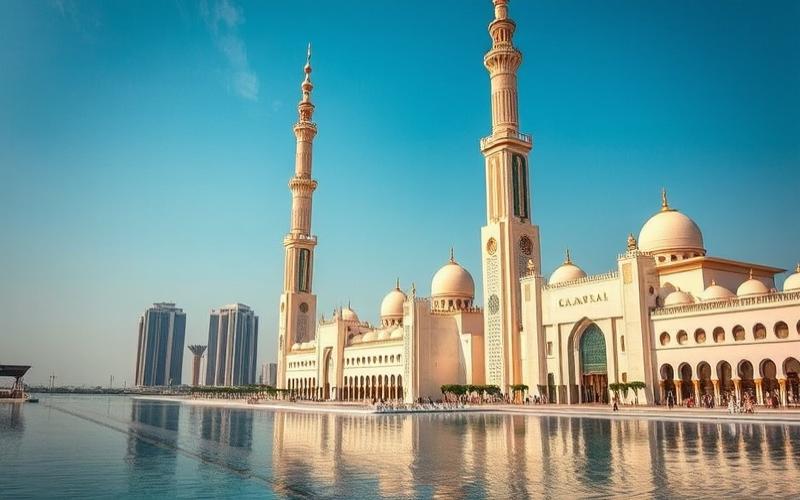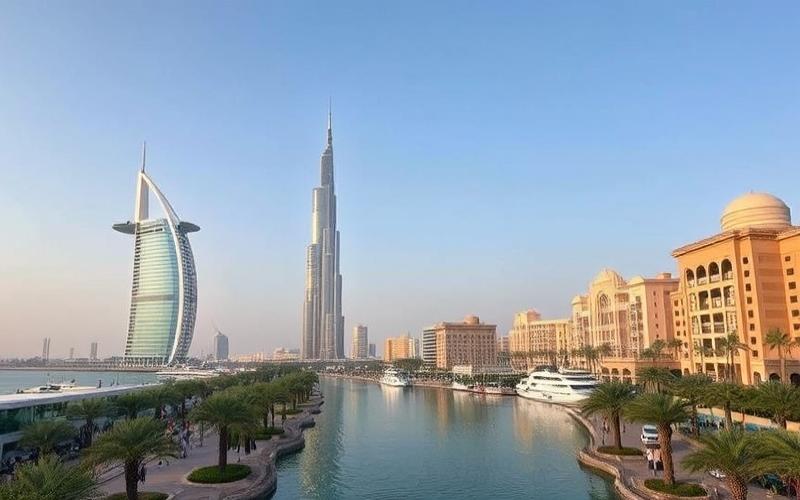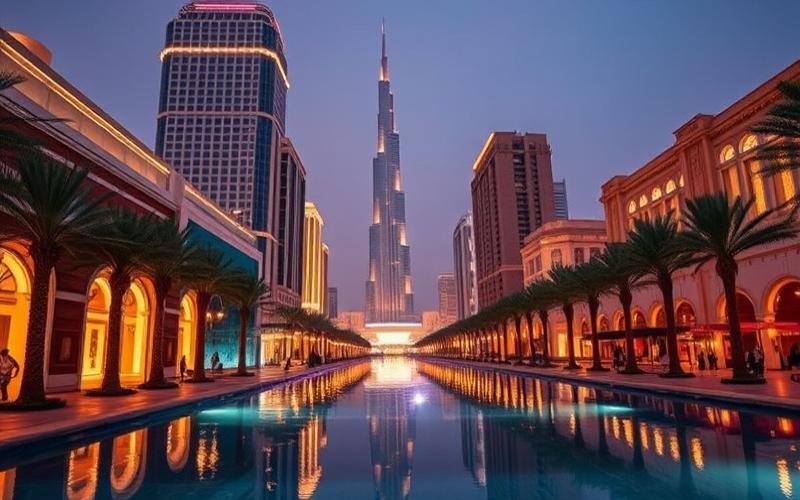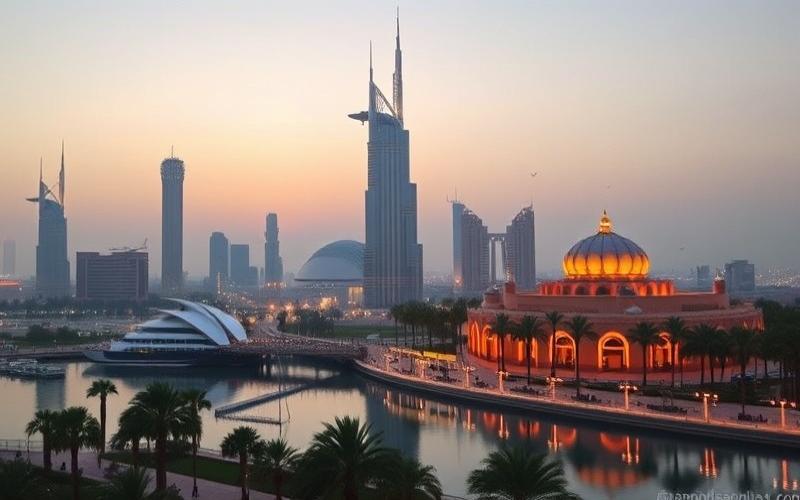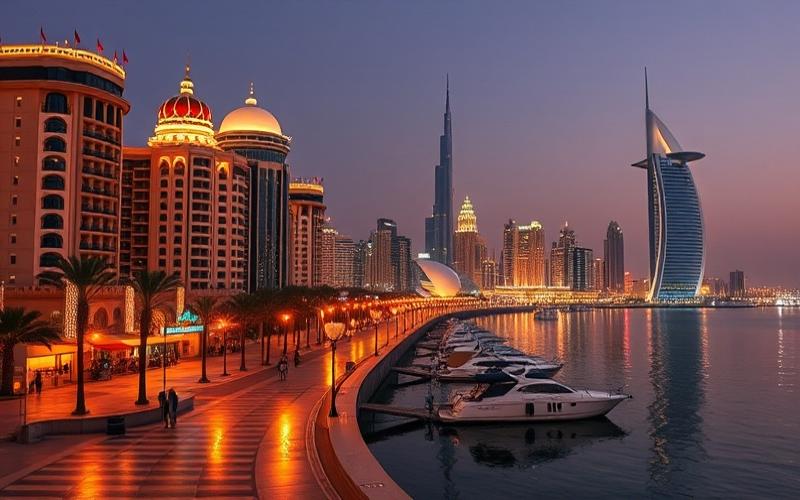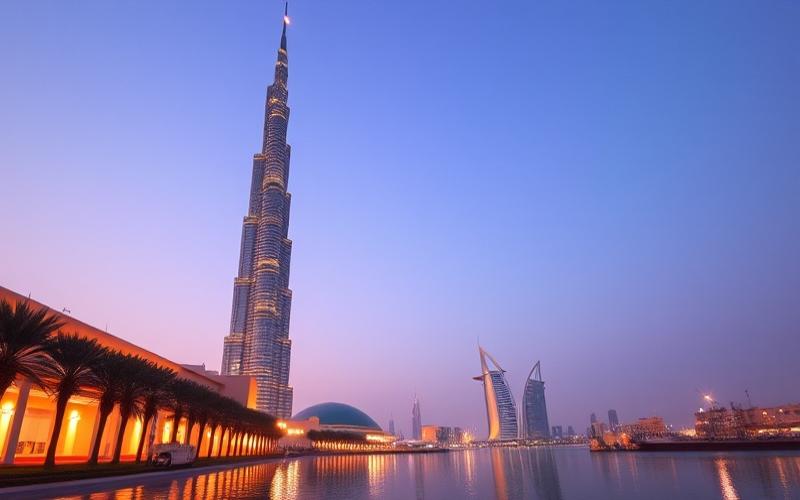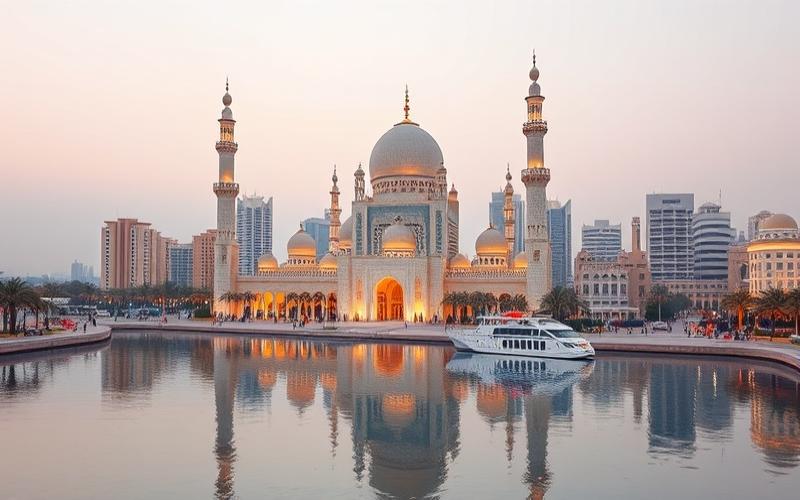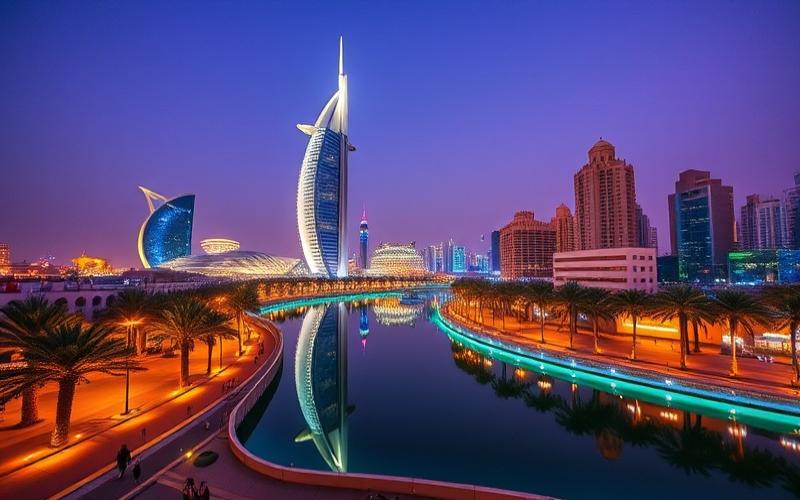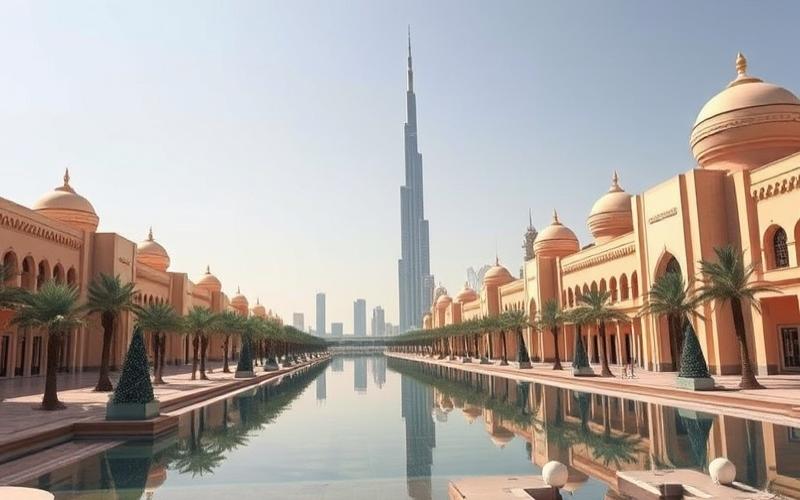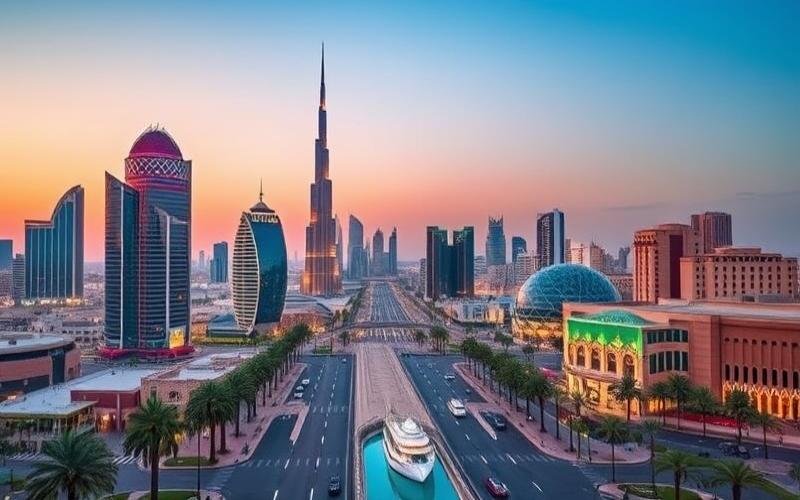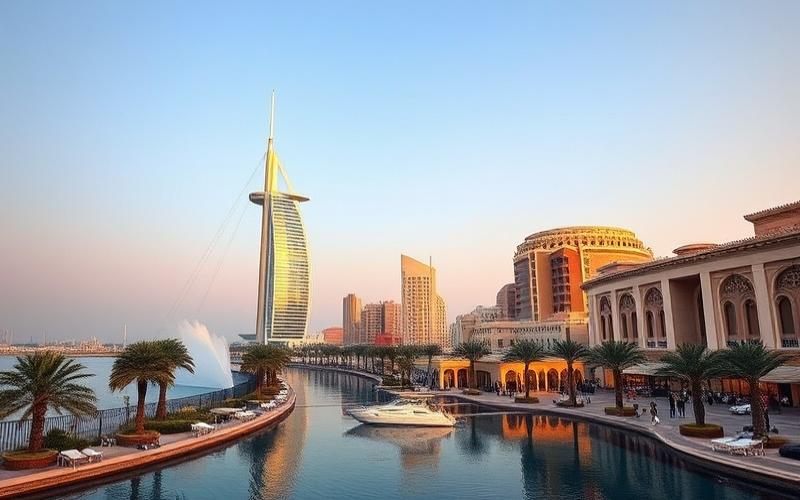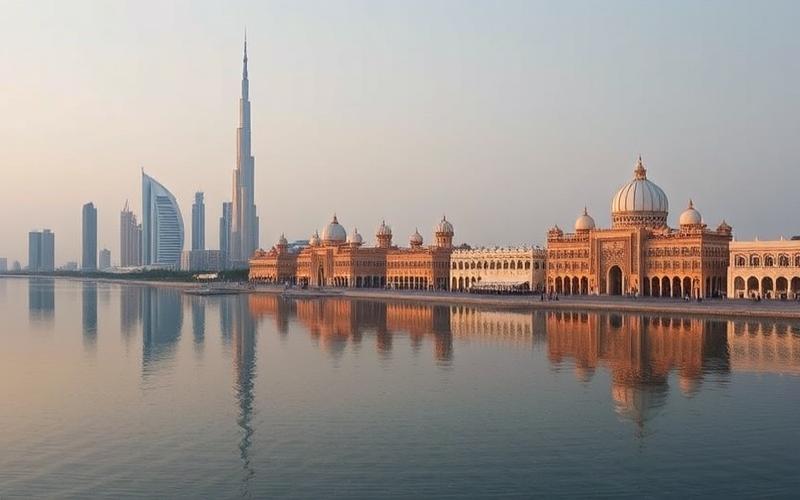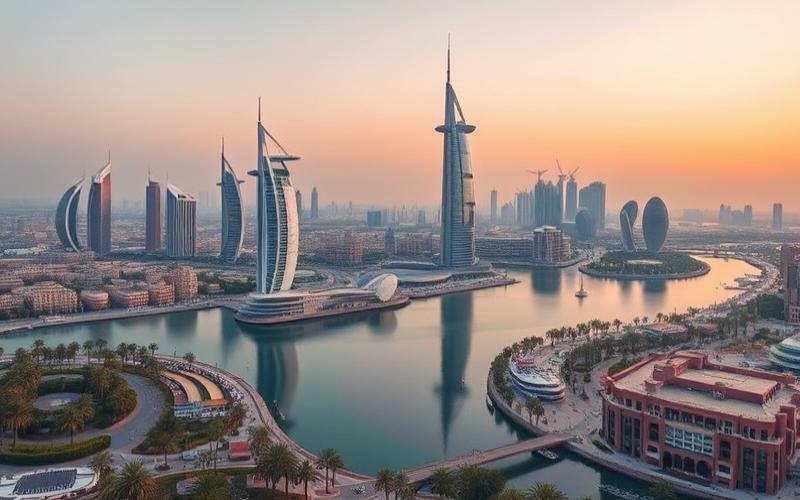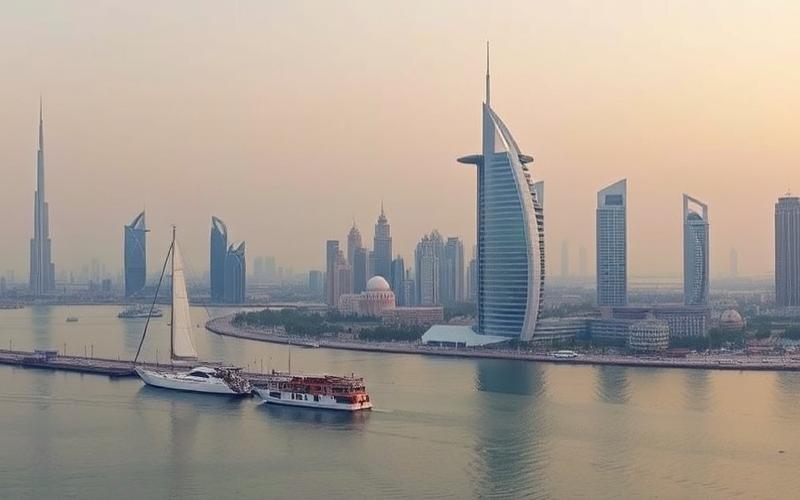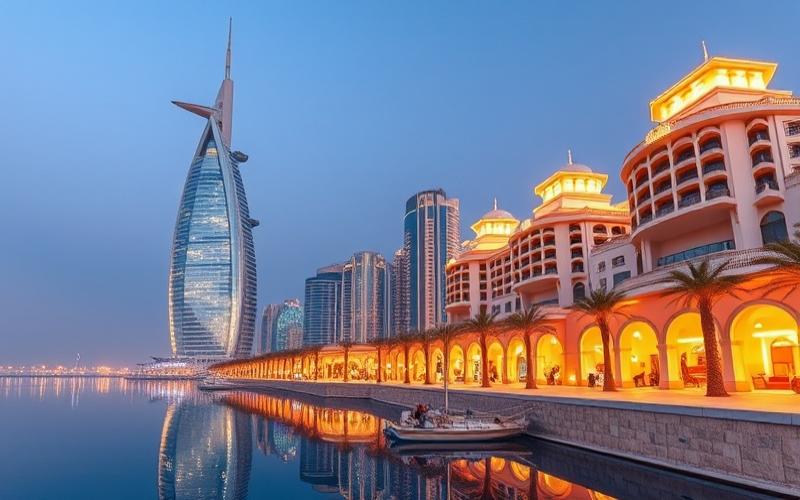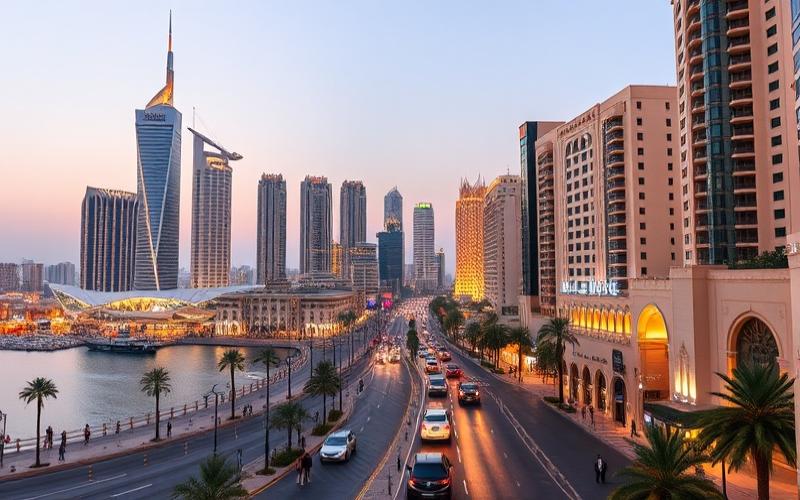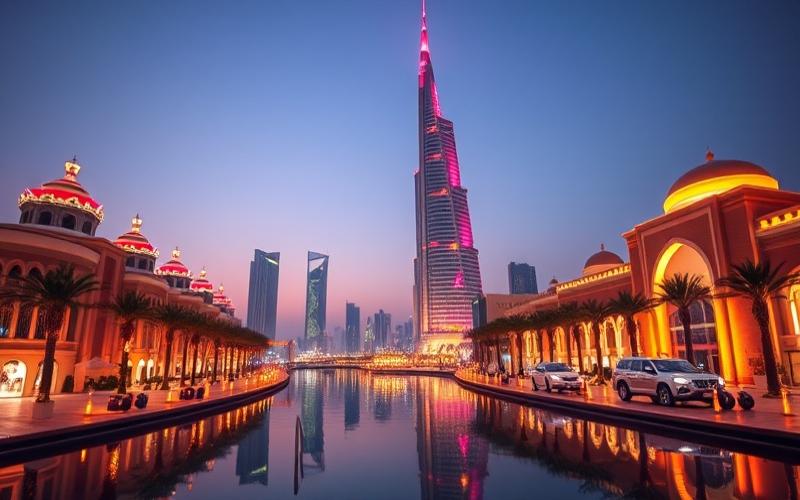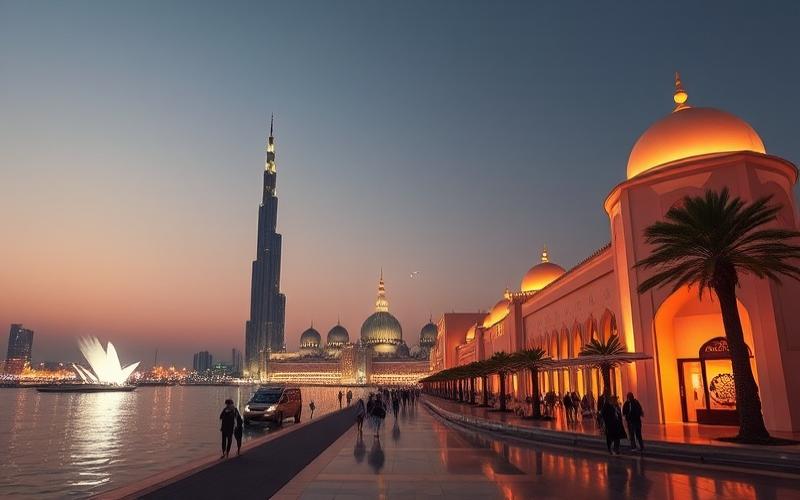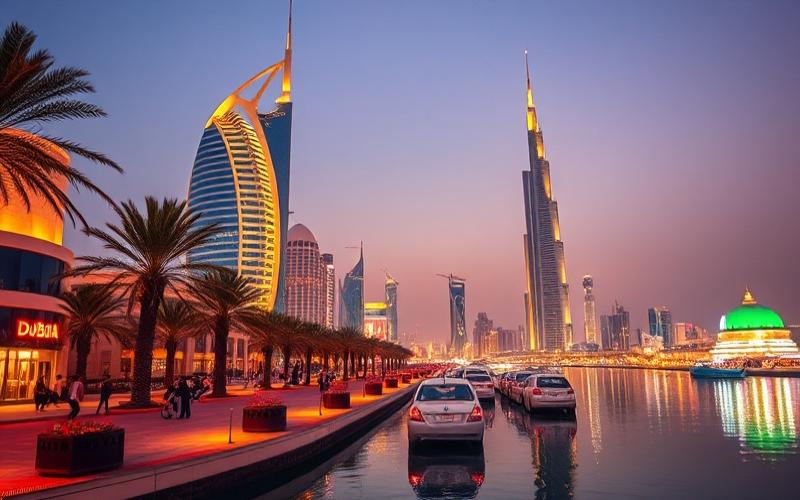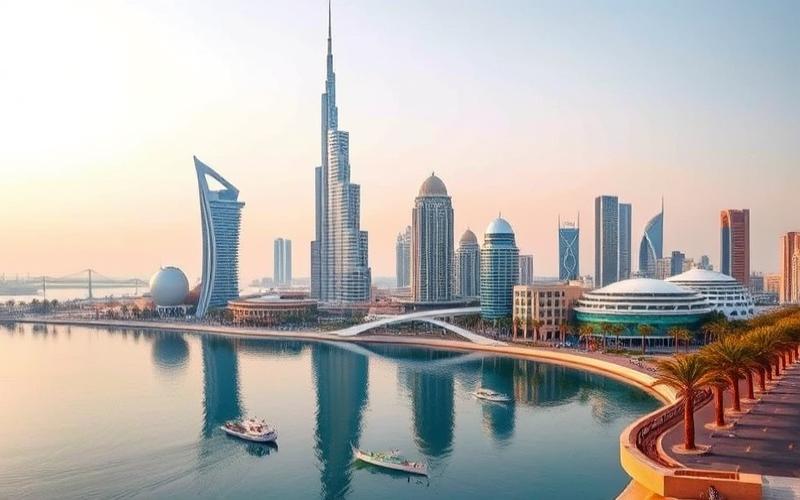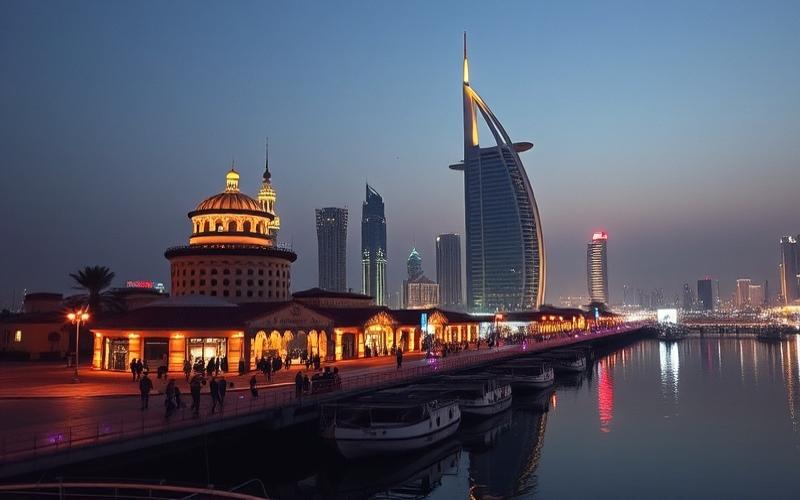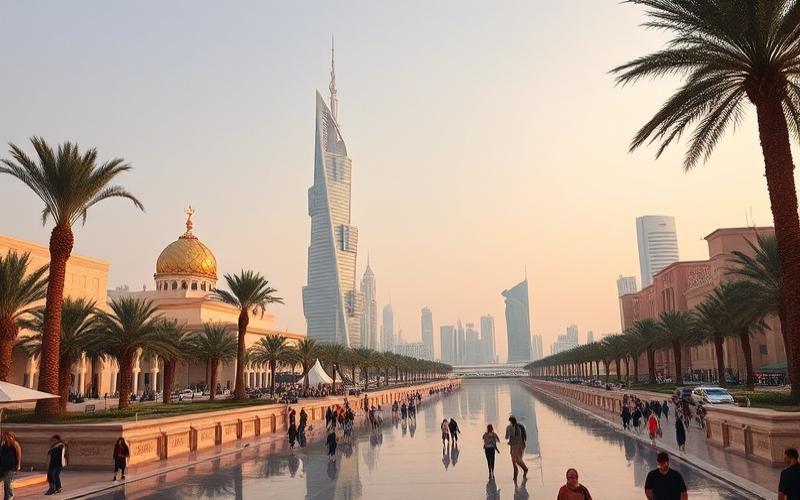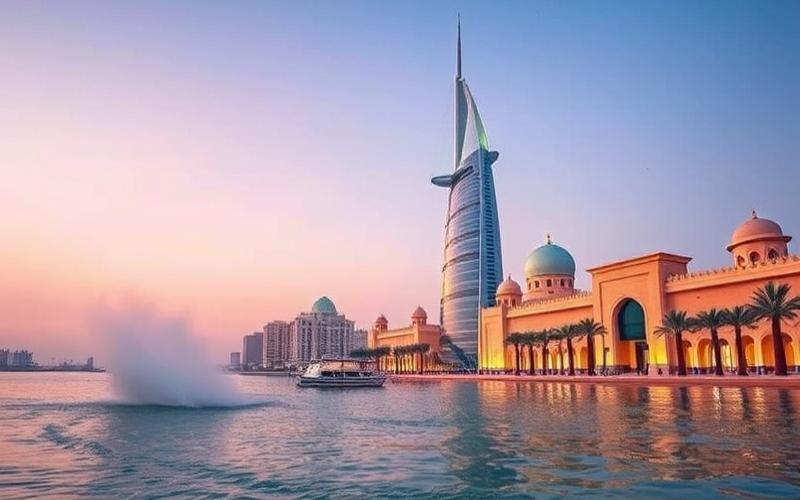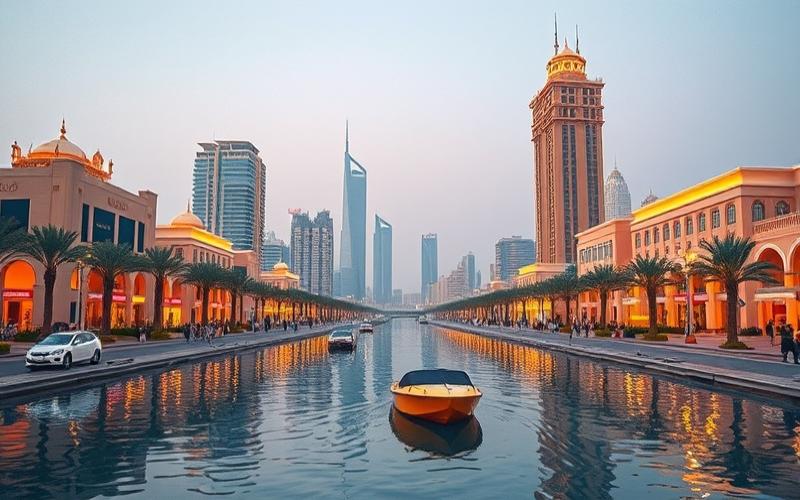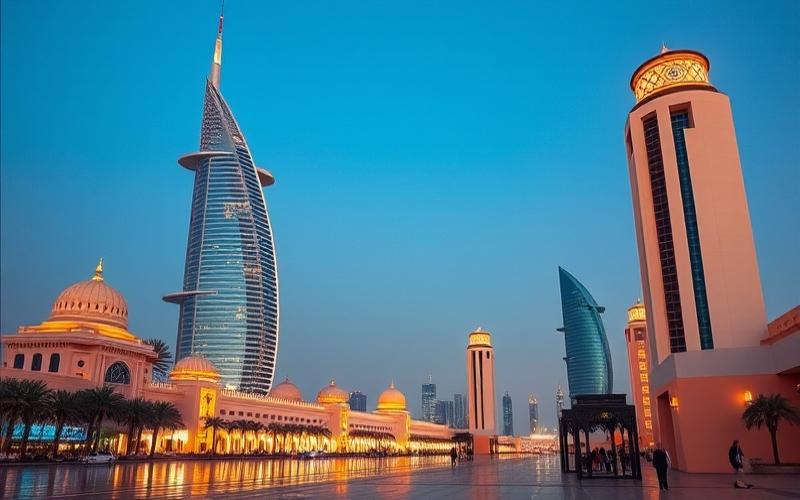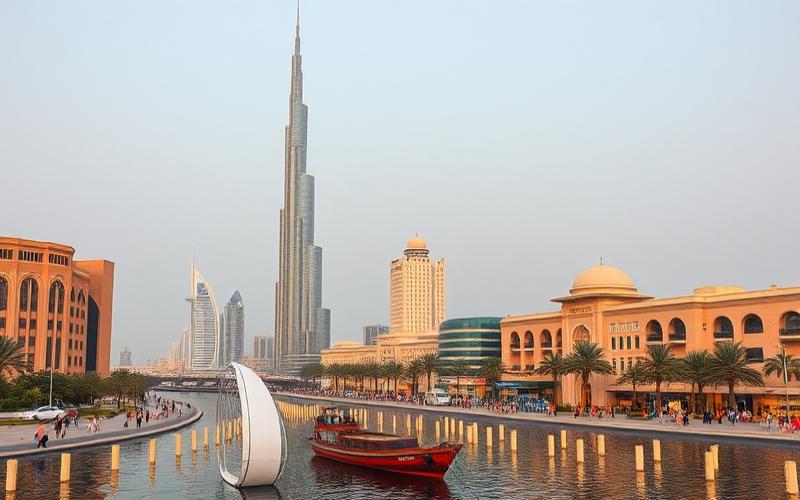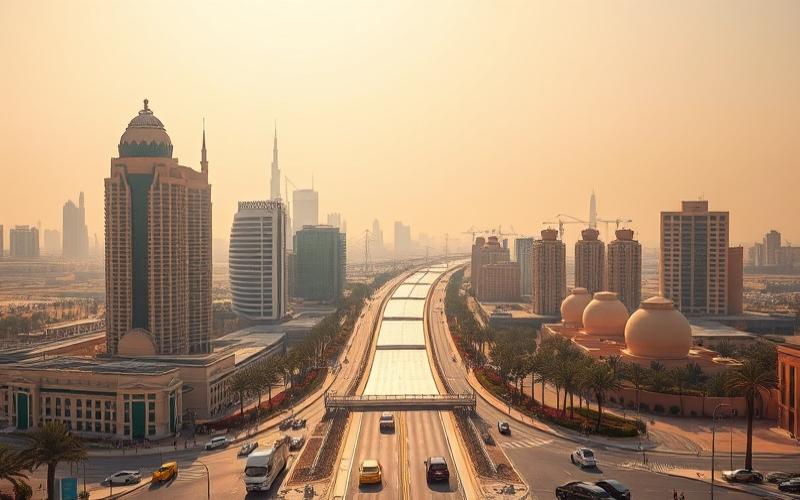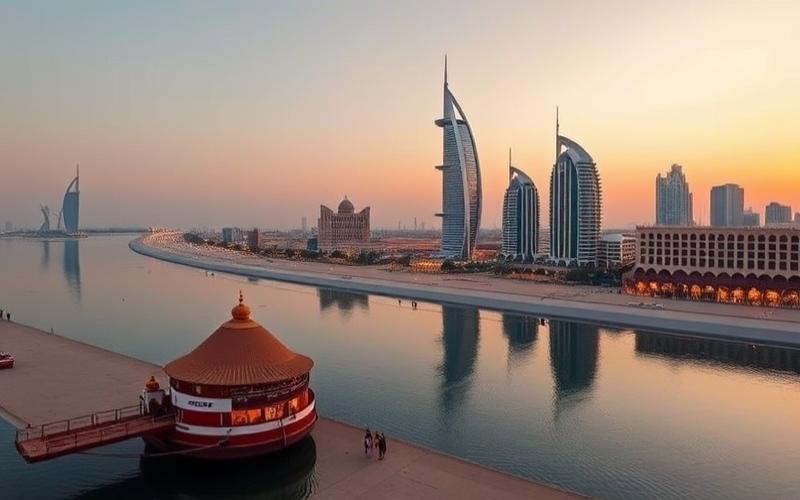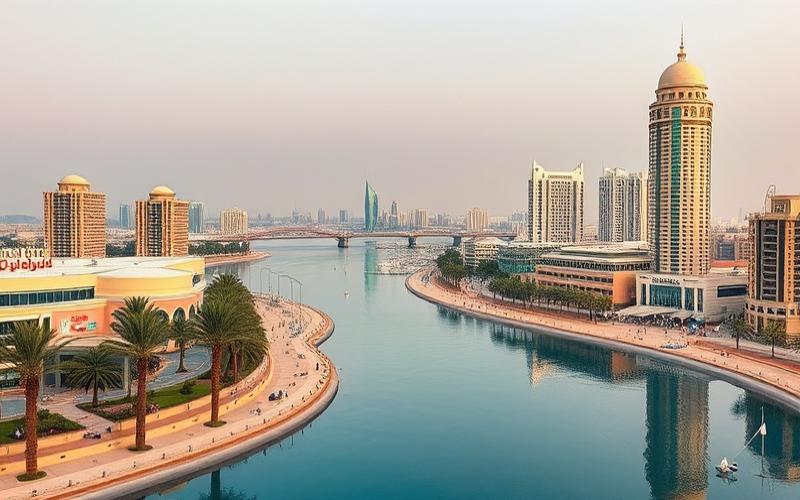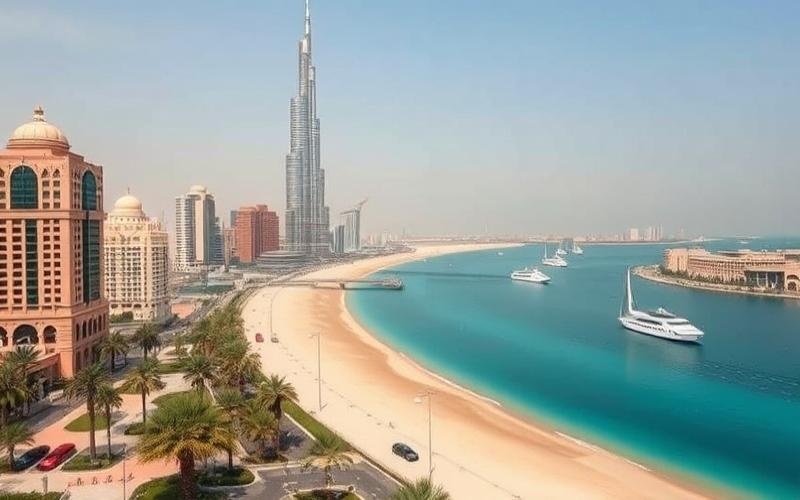
 Published on and written by Cyril Jarnias
Published on and written by Cyril Jarnias
The digital nomad phenomenon is reshaping residential dynamics in Dubai, a global crossroads of innovation and business. Attracted by favorable tax regulations, technologically advanced infrastructure, and a cosmopolitan lifestyle, these remote workers play a crucial role in transforming the local rental market.
By choosing to establish temporary residence in the emirate, digital nomads are redefining expectations for modern, connected housing, thereby accelerating demand for high-end properties. This continuous influx continues to stimulate real estate investments and alters developers’ priorities, who are adapting their strategies to appeal to this new clientele seeking flexibility and comfort.
Understanding the Digital Nomad Concept in Dubai
A digital nomad is a person who works remotely using information and communication technologies while freely traveling from one location to another. This lifestyle typically involves minimal possession of material goods and the use of temporary spaces such as furnished accommodations, cafes, public libraries, or coworking spaces, connected via Wi-Fi or mobile networks.
In Dubai, this concept applies particularly well thanks to the launch of the Digital Nomad Visa (or “Dubai Virtual Working Programme”), allowing foreign professionals to reside in the emirate for up to one year while working for employers or clients located outside the United Arab Emirates. This visa does not require a contract with a local company and provides access to various essential services for the holder and their family.
Main Benefits for Digital Nomads in Dubai:
- Year-round sunny climate
- Widespread high-speed internet connection
- Numerous modern coworking spaces suited for flexible work
- Simplified administrative procedures thanks to the special remote work visa (no local sponsor required)
- Easy access to international medical and educational facilities
- Exemption from personal income tax
Comparative Table: Key Strengths
| Benefit | Description |
|---|---|
| Climate | Sunny >300 days/year |
| Internet | Widespread fiber optics, ubiquitous 4G/5G |
| Coworking | Varied spaces: WeWork, Nook Coworking, Regus… |
| Remote Work Visa | 1 year renewable; centralized procedures |
| Taxation | Zero personal income tax |
Potential Challenges Faced by Digital Nomads in Dubai:
- High cost of housing and daily living (especially in central neighborhoods)
- Necessary adaptation to local cultural norms (modest dress in certain public places; regulated alcohol consumption)
- Limited access to certain banking services without traditional long-term residence
- Extreme summer temperatures that can affect mobility
Summary List of Main Challenges:
- Among the highest rents in the Middle East
- Required cultural sensitivity in social life
- Certain restricted websites without VPN
- Often significant expenses related to leisure/imports
Growing Popularity & Recent Statistics
Recent years have seen a significant increase in the number of digital nomads choosing Dubai:
- The global total number exceeded 18 million in 2024.
- Applications for the digital nomad visa have seen a sharp rise since its post-pandemic launch.
- According to some industry studies published in early 2025, several thousand expatriates already benefit each year from the specific “Remote Work Visa” program launched by Dubai.
This dynamic is explained by the active strategy pursued by the emirate to attract international talent and digital entrepreneurs—thus strengthening its position as an essential hub for global flexible work.
Good to Know:
Digital nomads, designated as professionals who can work entirely online, find Dubai an attractive location thanks to its state-of-the-art infrastructure and welcoming climate. Dubai offers benefits like high-speed internet connectivity, sophisticated coworking spaces, and a special visa for remote workers facilitating administrative formalities. However, living in Dubai presents challenges such as a high cost of living and certain cultural restrictions. A recent study indicates that the emirate saw an increase of over 30% in the number of digital nomads between 2020 and 2023, proof of the growing popularity of this phenomenon in the region. These workers, while stimulating the rental market, also force a reevaluation of housing structures to adapt to their flexible lifestyle.
The Rise of Coliving for Digital Nomads in Dubai
Coliving is an innovative accommodation solution that combines private spaces and common areas, creating an environment conducive to sharing and collaboration among residents. This concept particularly appeals to digital nomads—these remote workers and freelancers who prioritize flexibility and international mobility—as it perfectly meets their specific needs.
In Dubai, coliving has taken on a particular dimension, reflecting the emirate’s ambition and forward-thinking character. Dubai’s coliving spaces stand out for their exceptional level of technological innovation, systematically offering ultra-fast internet connections and workspaces equipped with the latest technologies. Luxury, a signature of Dubai, is expressed in these places through high-end amenities, premium services, and recreational facilities worthy of the best hotel complexes.
Benefits for Digital Nomads
Coliving spaces in Dubai offer numerous advantages for digital nomads:
- Contract flexibility with short leases suited to their itinerant lifestyle
- Cosmopolitan environment allowing connection with professionals from around the world
- Optimal work infrastructures promoting productivity
- Regular networking events facilitating professional development
- Perfect balance between private life and social opportunities
| Feature | Traditional Coliving | Coliving in Dubai |
| Weekly Price | $100 – $500 | $300 – $1500 |
| Internet Connection | High-speed | Ultra-fast fiber optic |
| Included Services | Basic (cleaning, water, electricity) | Premium (concierge, transport, wellness) |
| Common Areas | Living room, kitchen | Pools, spas, gyms, panoramic lounges |
| Networking Opportunities | Informal | Structured events with local business ecosystem |
Among the most sought-after coliving spaces in Dubai is “The Collective,” located in the business district, which offers private apartments and ultramodern coworking spaces with views of the Burj Khalifa. “Nomad Nation” in the Jumeirah area offers a more relaxed experience with beach access while maintaining top-tier professional infrastructures.
“Living in coliving in Dubai allowed me to develop my digital marketing consulting business while enjoying an exceptional living environment. I was able to establish valuable professional contacts with entrepreneurs from around the world, while benefiting from facilities that allow me to be productive and relax.”
The rise of coliving is gradually transforming Dubai’s real estate market. These spaces fill a gap between traditional hospitality and classic rentals, meeting a growing demand for accommodations adapted to new work modes. Local real estate developers now systematically integrate coliving projects into their developments, recognizing the economic potential of this rapidly expanding segment.
This trend fits perfectly into Dubai’s economic diversification strategy, which seeks to attract international talent and establish itself as a hub for entrepreneurs and digital workers. Coliving thus helps shape a new identity for the city, beyond its reputation as a tourist and commercial destination, positioning it as a favorable ecosystem for nomadic professionals in the digital world.
Good to Know:
Coliving, an innovative concept combining shared living space and dynamic community, particularly appeals to digital nomads for the flexibility and professional network it offers. In Dubai, coliving spaces reflect the city’s emblematic innovation and luxury, with high-end offerings featuring exceptional connectivity. Places like The Collective and Hive Coliv have gained popularity, offering cosmopolitan environments where residents like Emma, a freelance designer, appreciate networking opportunities and organized activities. These structures positively impact Dubai’s rental market, meeting the growing demand for accommodations suited to digital nomads’ needs, while reinforcing the city’s appeal as a technological and entrepreneurial hub.
The Impact of Digital Nomads on the Rental Market
The Impact of Digital Nomads on Dubai’s Real Estate Market
Dubai is experiencing significant growth in its digital nomad population, with an impressive increase of +66% in 2025, positioning the city 7th globally among destinations for these remote workers. This trend is part of a global phenomenon numbering between 40 and 80 million digital nomads, of which 44% are American.
| Key Dubai Indicators for Digital Nomads | Ranking/Statistics |
|---|---|
| Overall Ranking | 21st (score: 78.84) |
| Visa Benefits Ranking | 12th |
| Quality of Life Ranking | 13th |
| Nomad Population Growth (2025) | +66% |
| Global Position as Nomad Hub | 7th |
This influx exerts considerable pressure on the local real estate market. Neighborhoods favored by digital nomads, typically well-connected and offering coworking spaces, are experiencing disproportionate rent increases compared to the rest of the city. Demand is particularly concentrated on furnished housing and short-term rentals, creating scarcity in certain segments.
The advantageous economic profile of digital nomads amplifies this phenomenon—with an average annual income of $124,170, they have greater purchasing power than many local residents, allowing them to more easily absorb price increases.
- 79% of digital nomads report being very satisfied with their income
- 56% hold traditional full-time positions
- 70% work 40 hours or less per week
- 59% work from a home office
The UAE government has responded to this situation by implementing specific measures. Visas for digital nomads in the UAE rank 12th globally for their benefits, but 51st in terms of costs. These policies aim to attract these workers while regulating their impact on the local real estate market.
Looking ahead, several factors suggest a continuation of this trend. With 99% internet penetration and 100% social media adoption of the population, Dubai’s digital infrastructure is perfectly suited to the needs of remote workers. The +145% growth in technological infrastructure in 2025 further strengthens this position.
The demographic profile of digital nomads (38% millennials, 90% with higher education, 79% being early technology adopters) suggests that this population will continue to grow in Dubai, maintaining pressure on the real estate market in the coming years.
Good to Know:
The massive arrival of digital nomads in Dubai, attracted by modern infrastructure and favorable tax policies, has significantly increased demand for rental housing, leading to a price increase of over 15% in the last two years, according to data from the Dubai Housing Authority. Popular neighborhoods like Marina and Downtown Dubai are experiencing a growing shortage of affordable housing, exacerbating the situation for permanent residents. Local real estate agents note a marked preference among digital nomads for short-term, furnished leases, stimulating a niche market for flexible real estate. To address this growing pressure, the Dubai government has implemented specific visas and regulations aimed at balancing supply and demand, while promoting housing construction in peripheral areas. In the future, it is likely that Dubai’s rental market will further adapt to this new demographic, innovating to offer co-living and short-term rental solutions suited to the mobility of digital nomads.
The Importance of High-Speed Wi-Fi and Short-Term Rental Contracts in Dubai
High-speed Wi-Fi is an essential resource for digital nomads in Dubai, as their professional activity relies on the ability to access the internet quickly and reliably. Several factors explain this need:
- Remote Work: Digital nomads need uninterrupted connection to collaborative platforms and cloud tools, often synchronized in real time.
- Video Conferences: Stable connections are essential for organizing or participating in international video meetings, without latency or interruptions.
- Large Data Transfers: Whether sending heavy files (video, graphic design) or accessing remote databases, significant bandwidth is crucial.
Dubai responds particularly well to these requirements thanks to the following elements:
| Key Asset | Description |
|---|---|
| Ultra-fast Internet | Residential apartments generally have high-speed fiber optic connections. |
| Modern Infrastructure | The urban network ensures stable access in most neighborhoods and public spaces. |
| Flexible Offers | Many accommodations offer short contracts with reliable internet included upon arrival. |
Short-term rentals with efficient Wi-Fi access therefore naturally appeal to digital nomads:
- Contract flexibility allowing adjustment of stay duration according to missions or projects.
- Guarantee of immediate connectivity upon moving into the accommodation.
- Absence of lengthy administrative procedures to install a personal line.
Impact on the Local Rental Market:
These offerings are gradually transforming the real estate sector by adapting to the mobile lifestyle:
- Increase in the number of furnished apartments rented monthly with integrated services (high-speed internet included).
- Diversification of the rental stock to attract this demanding international clientele.
- Economic stimulation through the temporary but regular hosting of foreign professionals.
In summary, the widespread availability of high-speed Wi-Fi coupled with flexible rental solutions now makes Dubai an essential hub for nomadic workers seeking efficiency and digital comfort.
Good to Know:
High-speed Wi-Fi is essential for digital nomads in Dubai, as it allows them to effectively participate in video conferences, perform remote work without interruption, and quickly transfer heavy data. Accommodations with short-term rental contracts including reliable internet access are particularly sought after by this community, as they offer the necessary flexibility and infrastructure adapted to their professional needs. This trend fuels a growth in demand for well-equipped temporary housing, thereby influencing the local rental market by making it more dynamic for discreet landlords who adapt their offerings to this mobile public. The ability to meet these specific expectations can not only increase the attractiveness of these accommodations but also offer a lucrative opportunity for real estate investors in a city where connectivity and professional mobility have become paramount.
Disclaimer: The information provided on this website is for informational purposes only and does not constitute financial, legal, or professional advice. We encourage you to consult qualified experts before making any investment, real estate, or expatriation decisions. Although we strive to maintain up-to-date and accurate information, we do not guarantee the completeness, accuracy, or timeliness of the proposed content. As investment and expatriation involve risks, we disclaim any liability for potential losses or damages arising from the use of this site. Your use of this site confirms your acceptance of these terms and your understanding of the associated risks.


